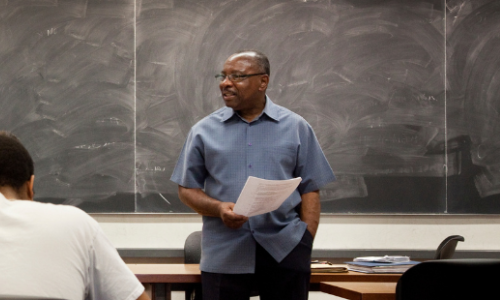
Anthropology (HBA)
Anthropology is the study of humankind from its beginnings to present. In practice, the discipline divides itself into several subfields, each of which focuses on different aspects of human life across space and through time.
The Anthropology HBA programs (Specialist, Major and Minor) focus on contemporary societies, languages and cultures across the globe. Anthropology Arts faculty do research in Sub-Saharan Africa, the Middle East, South Asia, Southeast Asia, the Caribbean, Europe and North America. Through far-reaching subject matter – from language and communication to political, legal and economic systems; magic, science and religion to the body, sex and gender – students gain unique insights into the extraordinary similarities and differences that make humans human. The Anthropology HBA fosters skills in oral and written communication, critical thinking and problem solving, social and cultural analysis, and library and field research – highly prized skills among a wide range of employers and professional degree programs. For double majors, our programs pair well with many other disciplines including Sociology, History and Political Science.
Honours Bachelor of Arts
Program Plans
Plan your degree with these academic and co-curricular program overviews.
Tip Sheets
Learn more about further education, applying to jobs & more!
- Paleontologist
- Archaeologist
- Epidemiologist
- Immigration Officer
- Museum Education Educator
Admission Requirements
Regional Requirements
Admissions RequirementsLife in Anthropology (HBA)
Buzz Around Campus
Sample Courses
Introduction to linguistic anthropology and sociolinguistics. This includes: the issue of meaning in language, the use of language in context, the role of language in the organization of human activity, language and identity.
This course explores ethnographically the social and cultural practices through which the exercise of power is legitimized, authorized, and contested.
What's the difference between magic and science? Is there one? This course explores anthropological approaches to magic and science and related topics.
Other Programs to Consider

Criminology, Law & Society
The Criminology, Law & Society programs take an interdisciplinary approach to understanding and explaining law, crime and criminal justice. This permits students to use select courses in Anthropology, Forensic Science, Philosophy, Political Science, Sociology, Psychology, and Women and Gender Studies to satisfy program requirements.

Sociology
Sociology thus creates theories about a broad range of human activity. Sociologists study how families work; how individuals change over the life course; how norms and laws are made, broken, enforced, and changed; how inequalities of gender, class, and race emerge, continue, and change.

History & Political Science
This combined specialist program encourages students to understand the theories in History and Political science as complementary and contrasting to each other, in order to understand the society, culture, and governments. Students will take courses in both History and Political Science to meet the program requirements.



